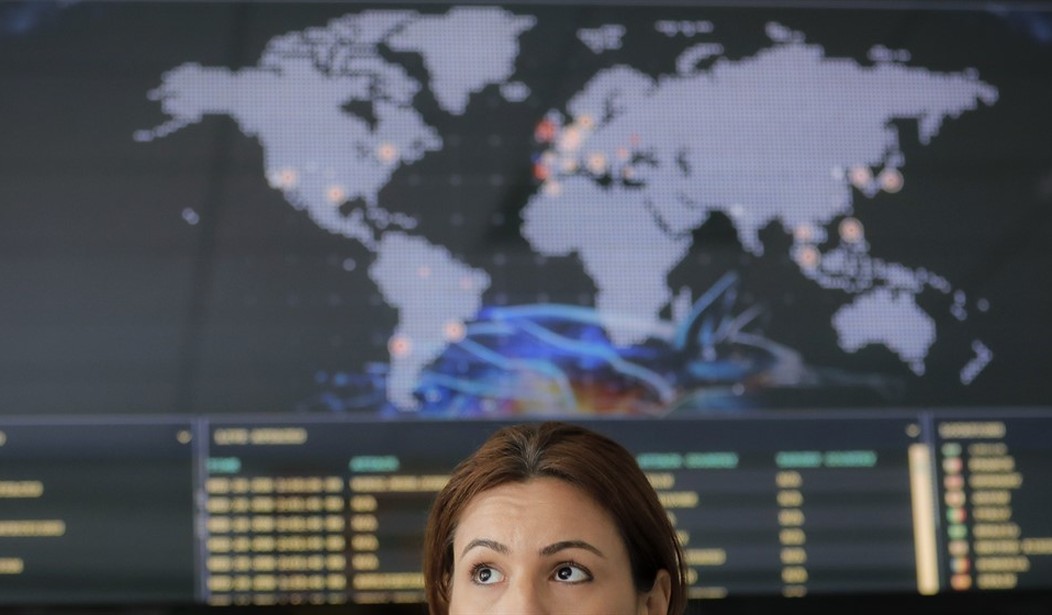Whereas once upon a time — at least until the outbreak of World War I demonstrated the dramatic geopolitical spillover effects of an assassination of a Austria-Hungarian duke in the Balkans — conflicts between nation-states stayed relatively confined to the initial combatants, in the modern era, instability in one region of our highly interconnected world has a way of rapidly spiraling out of control.
Combine that reality with the reality of nuclear weapons, and we have Armageddon more or less permanently on the table just a few clicks of a proverbial mouse on the “launch” button away.
Related: Columbia U Video Promotes Hillary Clinton's New Foreign Policy Course
Although it’s not a military alliance in the vein of NATO, BRICS welcomed Iran as its newest member a year and a half ago.
“Iran officially became a member of the China-led BRICS economic organization.” Iran International Reported in January 2024. “In its policy of finding shelter under Chinese and Russian-dominated international organizations, Iran achieved full membership in the Shanghai Cooperation Organization in July 2022 and concurrently pursued entry into the BRICS group.”
Related: Politicians and Multinational CEOs Created America's Top Geopolitical Menace
As one might expect, given their deepening economic and political ties, both China and Russia vociferously condemned Israel’s recent strikes on Iranian nuclear and military targets.
Via Reuters (emphasis added):
China condemns Israel's violations of Iran's sovereignty, security and territorial integrity and urges Israel to immediately stop all risky military actions, China's U.N. Ambassador Fu Cong said, state media Xinhua News Agency reported.
"China opposes the intensification of contradictions and the expansion of conflicts, and is deeply concerned about the consequences that may be brought about by Israel's actions," Fu was quoted as saying at a meeting held by the UN Security Council on the Middle East situation on Friday.
Via Newsweek (emphasis added):
An ally of Russian president Vladimir Putin has said that "a full-scale war" in the Middle East is possible following Israel's airstrikes on Iran…
Konstantin Kosachev, vice-speaker of Russia's upper house of parliament and head of the Foreign Affairs Committee, made clear that Moscow would stand by its ally, Iran.
"Israel's actions cannot be justified from a legal, political, military or moral point of view. The only hope, albeit illusory, of avoiding a full-scale war is a consolidated condemnation of this operation by the international community," he said, according to Russia's official TASS news agency.
In January, Russia and Iran inked an unprecedented “strategic partnership treaty,” although it notably did not include a mutual defense pact that would necessitate Russian intervention in whatever war might pop off between Iran and Israel.
Via Reuters (emphasis added):
Russia has deepened ties with Iran since the start of the military conflict in Ukraine and signed a strategic partnership treaty with Tehran in January. Both countries are under Western sanctions and Moscow's oil and gas exports to Europe have drastically declined…. [Iranian Oil Minister Mohsen Paknejad] and the Russian minister signed a final document of bilateral agreements after a meeting of a Russo-Iranian economic cooperation commission, but the details were not disclosed.
China, Russia, Iran — and we could throw North Korea into the mix as well — obviously all have highly disparate aspirations.
Even when Russia and China looked on paper like natural allies in the Soviet era, when both were led by communist regimes, their diplomatic relationship was notoriously frosty.
What unites them, however, is opposition to the neoliberal world order that has dominated the globe since the end of the Cold War.
Via Global Taiwan Institute (emphasis added):
Russia, China, Iran… are all… revisionists. They may not agree on what world order should ultimately look like—or whether there should even be a world order—but they are united in opposition to the order as it stands. And they are making headway. The world now may be approaching a moment in which, to use Kissinger’s framing, no single concept of order enjoys widespread legitimacy and the balance of power that has long upheld the presiding order proves no longer up to the task…
At the moment, Russia, Iran, and Iranian state and nonstate satellites are the main antagonists in the assault on global order.
All that to say: with these entangling alliances, Russia’s alleged designs on Moldova now and not just Ukraine, China with its sights set on Taiwan for many years now, only restrained by the threat of American defense of the island, it’s not hard to imagine an Israel-Iran conflict rapidly escalating even in far-off regions of the world.










